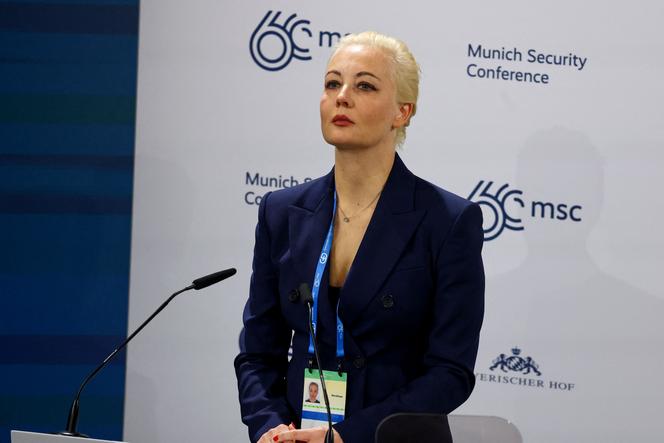


Alexei Navalny's widow said Monday, February 19, that Russian President Vladimir Putin killed her husband, as she vowed to carry on his work, three days after he died in an Arctic prison. Holding back tears in a video address published Monday, Yulia Navalnaya said: "Three days ago, Vladimir Putin killed my husband, Alexei Navalny."
Prison authorities said Navalny died after losing consciousness following a walk in his prison colony in Kharp, 2,000 miles northeast of Moscow inside the Arctic circle. "Alexei died in a prison colony after three years of torment and torture," Navalnaya said.
Navalnaya, who was by her husband's side in his fight against Putin, vowed to continue his work. "The most important thing we can do for Alexei and for ourselves is to keep fighting, more desperately and more fiercely than before," she said. "We need to seize every opportunity to fight against war, against corruption, against injustice, to fight for fair elections and the freedom of speech, to fight to take back our country."
She also vowed to uncover the people who she said had killed her husband. "We know exactly why Putin killed Alexei three days ago... We will definitely find out exactly who carried out this crime and how it was carried out. We will name names and show faces," she said.
The Kremlin said earlier on Monday that an investigation into Navalny's death was ongoing and slammed Western governments that have said Putin carries responsibility for his death. Russian authorities have so far refused to hand over Navalny's body to his mother and lawyer, enraging his supporters who have said it was a move by the "killers" to "cover their tracks."
EU foreign ministers meeting with Yulia Navalnaya on Monday will send a "message of support" to the Kremlin's opponents after his death in jail, EU foreign policy chief Josep Borrell told journalists: "We have to send a message of support to the Russian opposition."
Navalnaya was to join ministers of the 27-nation European Union in Brussels, as they weigh their – limited – options for inflicting new costs on Putin. The EU has already imposed unprecedented sanctions on Moscow – including on Putin – over its invasion of Ukraine and officials concede it will be difficult to impose further major pain after Navalny's death.
Yet Borrell said he expected EU member states to propose fresh sanctions on those directly responsible for Navalny's treatment, including in Russia's prison system. "The great responsible is Putin himself," Borrell said. He said that Brussels would look to rename its global human rights sanctions blacklist after Navalny in a symbolic move.
German Foreign Minister Annalena Baerbock said ministers would "initiate further sanctions measures" over Navalny's death. "The Russian brutal war of aggression [...] is not just a war against Ukraine, but against freedom itself," she said.
Other ministers said the death of Putin's greatest domestic foe should serve to bolster backing for Kyiv as its outgunned forces struggle to hold back Russia. "Putin is a murderer. Putin has murdered one person who fought for freedom for democracy, and this is exactly why we have to keep going," said Estonian Foreign Minister Margus Tsahkna. "The most clear response would be if we finally do our job. We have to support Ukraine."
That was echoed by Belgian minister Hadja Lahbib who warned that the death of Navalny served to underline the threat the Kremlin poses as it presses its offensive of Ukraine. "We must be aware of what is at stake today," she said. "If Russia manages to expand, it is a dictatorship that will expand and move a little closer to the European Union."
